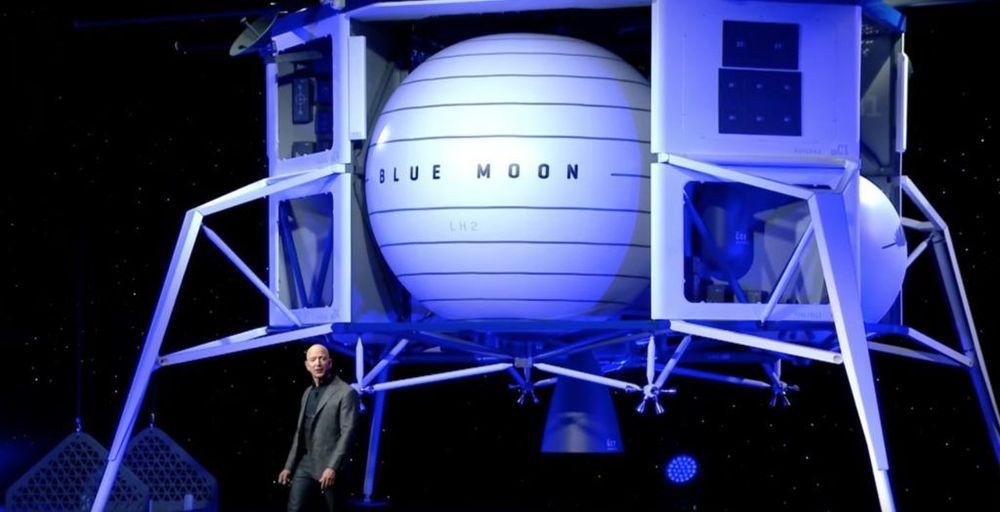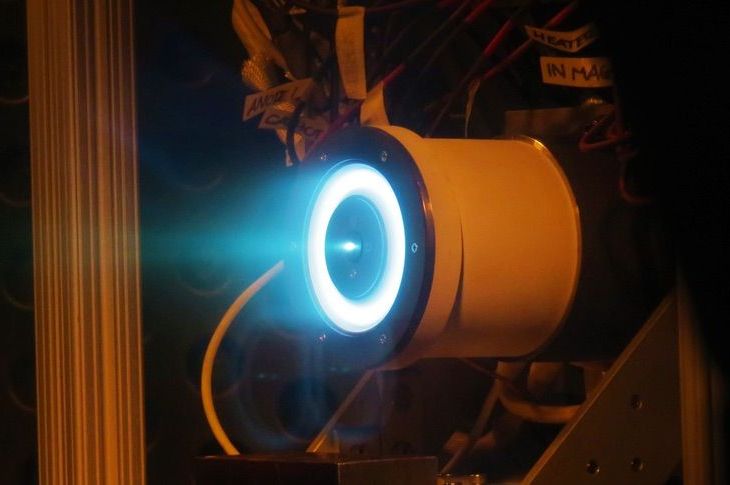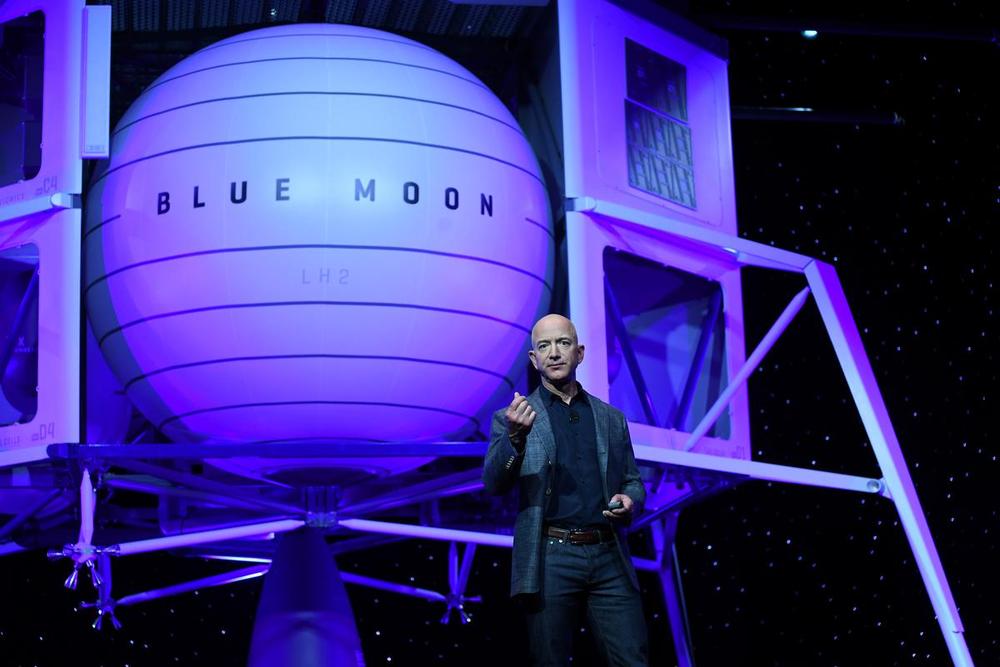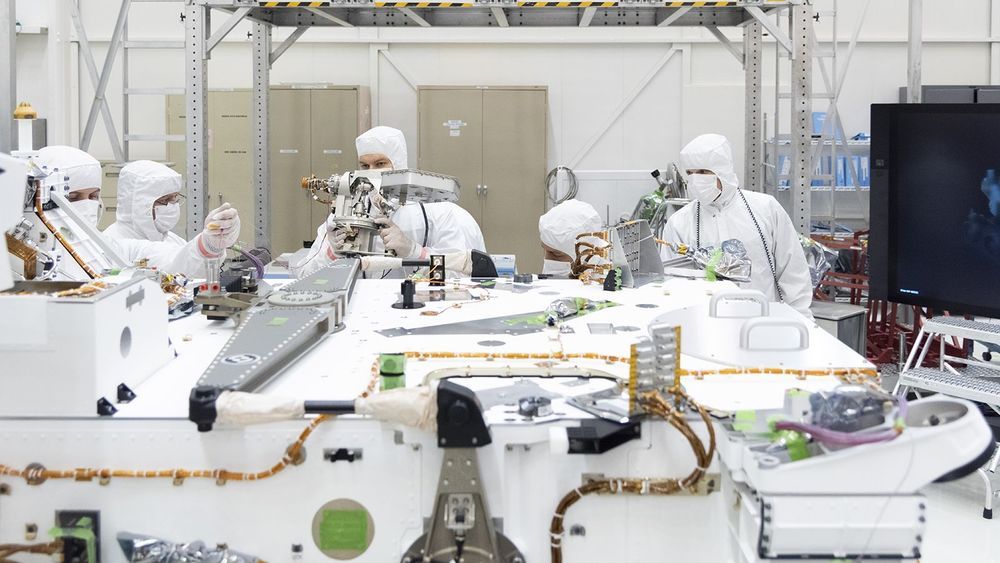Jeff Bezos discussed his vision to go to space to benefit Earth. He announced the Blue Moon lunar lander and provided updates on the New Shepard sub-orbital rocket and other Blue Origin activity. Jeff’s vision is for humanity to colonize space and for civilization to become primarily space-based. Industry will move to space and the resources of the solar system will be used so that growth can continue. There is billions of times the resources of the Earth in the solar system.
Blue Moon lunar lander is a large lunar lander capable of delivering multiple metric tons of payload to the lunar surface based on configuration and mission. The cargo variant revealed today can carry 3.6 metric tons to the surface. There is a larger design of the lander that can stretch to be capable of carrying a 6.5-metric-ton, human-rated ascent stage. Blue also announced it can meet the current Administration’s goal of putting Americans on the Moon by 2024 with the Blue Moon lunar lander.






